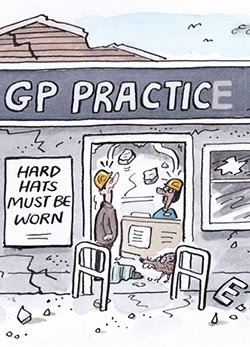

Seven steps towards the General Election
The College hit the headlines in the Autumn with the results of its annual tracking survey, which for the first time asked members about how rising cost of living has impacted on their patients’ health and their daily practice.
It found seven out of ten GPs are seeing a ‘worrying’ rise in the number of patients seeking help with problems linked to the rising cost-of-living – and 73 per cent of respondents had noticed an increase in patients presenting with problems associated with poor diet and poverty.
They report that patients are increasingly asking for support with non-medical items including access to council services and financial advice.

The survey also revealed that a mammoth 93% of GP respondents were concerned that the rising number of patients needing support with the cost of living would limit their ability to provide the medical care that patients need.
Commenting on the survey, which featured prominently in The Times, RCGP Chair Professor Kamila Hawthorne, said: “Our survey results show the worrying impact that rising cost of living is having on our patients’ health, and on the dedicated GPs who are caring for them.
“GPs are doctors, not financial advisers or housing officers, but we are often the first ports of call in a crisis… We will always do our very best for all our patients, but the demand for our services is rising at the same time as we have more GPs leaving the profession than entering it, and general practice itself is now in dire need of support. Our patients and our GPs deserve better.”
Read more
Thank you for your feedback. Your response will help improve this page.



